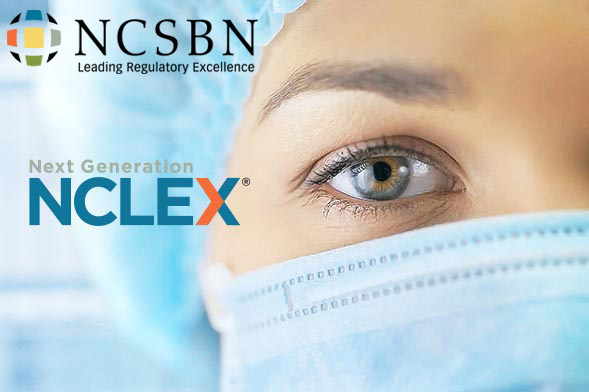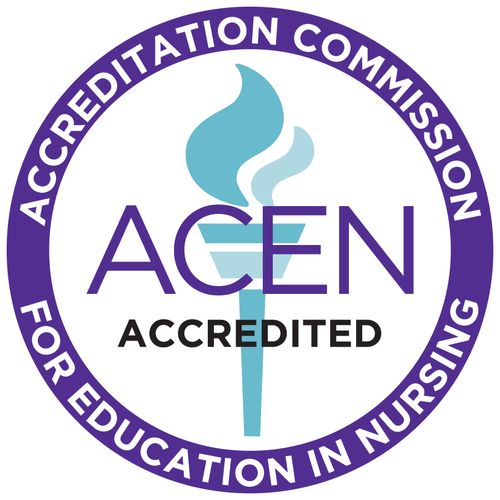New ADN Application Process!
Click the button to learn more and apply today!
Associate Degree in Nursing Program


View the public information disclosed by the ACEN regarding this program on the ACEN website.
The Associate Degree Nursing program at Santa Barbara City College at the Cliff campus, located in Santa Barbara, California is accredited by the: Accreditation Commission for Education in Nursing (ACEN).
3390 Peachtree Road NE, Suite 1400 Atlanta, GA 30326
(404) 975-5000
The most recent accreditation decision made by the ACEN Board of Commissioners for the SBCC ADN nursing program is: continuing accreditation.
The next ACEN accreditation visit will take place Spring 2033.
This website is continuously being updated to meet regulatory requirements and deadlines.
When applying, please make sure to review the most current application materials and
instructions.
For information regarding application cycles, prerequisites and how to submit your ADN Nursing Application, please click here.
“As a public community college dedicated to the success of each student . . .
Santa Barbara City College welcomes all students. The College provides a diverse learning environment and opportunities for students to enrich their lives, advance their careers, complete certificates, earn associate degrees, and transfer to four-year institutions.
The College is committed to fostering an equitable, inclusive, respectful, participatory, and supportive community dedicated to the success of every student.”
The mission of the SBCC ADN Program is to prepare compassionate and competent registered nurses who provide care consistent with our nursing concepts and organizational values. It supports the tenets of the American Nurses Association, the National League for Nursing, the California State Board of Registered Nursing, and Quality, Safety, and Education in Nursing (QSEN) standards and The Massachusetts Nurse of the Future.
The primary aim of the program is to prepare entry-level registered nurses as providers of care across the health/illness continuum and as members of the profession. The program is responsive to the changing healthcare needs of the community, state and nation.
The curriculum provides a positive, innovative learning framework that fosters the development of critical thinking/clinical reasoning and problem solving skills so that graduate nurses are equipped to deliver care to a culturally diverse population in a variety of healthcare settings.
The philosophy of the Associate Degree Nursing (ADN) Program supports and implements the vision and mission of Santa Barbara City College and is based on the paradigm of Nursing and Professional Practice, Education, and Caring. The purpose of the program is to provide a high-quality education that empowers students with the knowledge, skills and caring attitudes to become competent entry-level professional registered nurses, lifelong learners, and active community members.
Nursing and professional practice is an art and applied science based on a unique body of knowledge derived from the biological, psychological, sociological, and spiritual sciences.. As an art, nursing embodies learned therapeutic and caring behaviors and the creative use of skills and expertise essential to promote, maintain, and restore the person to an optimal level of health; as well as supporting a peaceful, dignified death. As a science, nursing integrates concepts from the humanities, natural, and behavioral sciences to develop a body of knowledge that supports the delivery of evidence-based care, involving utilization of the nursing process, application of critical thinking and the transfer of theoretical knowledge into clinical practice. Registered nurses are members of the collaborative health care team and as such, care for diverse individuals and families across the lifespan in a variety of inpatient and community-based settings by providing culturally sensitive, individualized, patient centered care. Professional values guide interactions with individuals, families, and the health care team. RNs demonstrate professional conduct by exhibiting accountability for their actions, practicing within their scope of practice, and assuming legal responsibility for the care they provide. RNs uphold their commitment to the public by adhering to an established code of ethics, which provides a context for making judgments and offers guidelines for maintaining professionalism.
Education of the nurse at the Associate Degree level prepares the individual as an entry level nurse in the profession of nursing. The nurse is educated to provide safe, competent, caring interventions, and patient care management through sound clinical decision making. Integrity, respect for the individual, ethical behavior, accountability, and lifelong learning are attributes of the art and science of nursing care. Faculty are committed to supporting students in the successful achievement of their goals through a curriculum designed for the adult learner. Faculty incorporate the individual learning styles of each student by offering instructional materials that address the auditory, visual, and kinesthetic learner. The concept of lifelong learning is emphasized throughout the Associate Degree in Nursing Program as a pathway to higher education.
Caring involves learning and understanding human needs, understanding and valuing individuality, and diversity. Caring also involves learning and understanding human needs and responses in varying states of health, and valuing individuality and diversity. By extending a caring presence, nurses promote dignity, reinforce self-esteem, enhance spirituality, nurture strengths, and facilitate healing. By extending a caring presence, nurses promote dignity, reinforce self-esteem, enhance spirituality, nurture strengths, and facilitate healing.
Student Learning Outcomes
- Evaluate nursing care provided to patients, families, groups, populations, and communities
from diverse backgrounds in a variety of settings to ensure that it is compassionate,
age and culturally appropriate and based on a patient's preferences, values and needs.
- Collaborate with members of the inter-professional health care team to manage and
coordinate the provision of safe, quality care for patients, families, and groups.
- Demonstrate use of best current evidence and clinical expertise when making clinical
decisions in the provision of patient-centered care.
- Utilize evidence-based quality improvement processes to effect change in the delivery
of patient- centered care.
- Demonstrate effective use of strategies to mitigate errors and reduce the risk of
harm to patients, self, and others in healthcare, home, and community settings.
- Utilize evidence-based information and patient care technology to communicate relevant
patient information, manage care and mitigate error in the provision of safe, quality
patient-centered care.
- Assimilate integrity and accountability into practices that uphold established regulatory,
legal, and ethical principles while providing patient-centered,standard-based nursing
care.
- Utilize leadership, management and priority-setting skills in the provision and management
of safe, quality patient-centered care.
- Utilize verbal and nonverbal communication strategies with patients, families, and groups from diverse backgrounds that promote an effective exchange of information and the development of therapeutic relationships.
- The student will demonstrate through clinical observation the establishment of a therapeutic
environment and appropriate communication with patient, family members, and team members.
- the student will employ evidence based practice by utilizing information technology
to implement plan of care and document patient outcomes.
- The student will verbalize and demonstrate elements of critical thinking by prioritizing
patient care to maintain SBCC ADN Basic Standards of Practice.
- The student will demonstrate integrity, accountability, and respect for diverse populations in both theory and clinical.
- Eighty percent (80%) of ADN Generic students will finish the program in 4 semesters.
(100% of the published program length begins with the first nursing course taken.)
Eighty percent (80%) of LVN-RN Bridge students will finish our program in 3 semesters.
(100% of published program length beginning with the first nursing course taken.)
-
Eighty-five percent (85%) of graduates will pass the NCLEX-RN exam on the first attempt.
- Ninety percent (90%) of graduating students responding to the Program Survey and Evaluation
Form will report the SBCC ADN Program as satisfactory in all of the following areas:
adequacy of curriculum to meet community needs; quality of instruction; learning environment;
learning resources; and college support systems.
-
Ninety percent (90%) of responding graduates will be employed within 6 months of passing the NCLEX-RN exam, as measured by the Graduate Questionnaire.
To view the current Associate Degree Nursing course and general education requirements, please click on the following link, look for "Nursing," click on "AS."
Associate Degree Nursing Curriculum
- Complete each required course in the ADN Program with a minimum grade of "C" or better
- Complete at least 18 units of general education requirements
- Complete a total of 60 degree-applicable units
- Maintain a cumulative GPA of 2.0 or better in all units attempted at SBCC
- Maintain a cumulative GPA of 2.0 or better in all college units attempted. Candidates for an Associate Degree are expected to complete 45 units at SBCC, or complete the last 15 units in residence at SBCC. (these will be fulfilled while in the program by nursing courses, if admitted)
First Semester
- NURS 162-Medical Surgical I
- NURS161-Pharmacology
Second Semester
- NURS 163-Beginning Medical-Surgical II
- NURS 165-Mental Health
Third Semester
- NURS 166-Intermediate Medical-Surgical Nursing III
- NURS 167-Maternal Newborn and Pediatric Nursing
Fourth Semester
- NURS 168-Advanced Medical-Surgical Nursing IV
- NURS 169-Gerontology Nursing/Community Health Nursing
- NURS 172-Transition to Professional Nursing Practice New Course for Professional Nursing Practicum
NCLEX Pass Rates
www.rn.ca.gov/education/passrates
www.rn.ca.gov/education/attrition
| July 1 - June 30, 2018 - 2019 | July 1 - June 30, 2019 -2020 | July 1 - June 30, 2020 -2021 | July 1 - June 30, 2021 -2022 | July 1 - June 30, 2022 -2023 | July 1 - June 30, 2023 - 2024 | July 1 - June 30, 2024-2025 | |
| Total Graduates Tested | 73 | 56 | 79 | 79 | 65 | 38 | 64 |
| Number Graduates Passing | 72 | 53 | 76 | 72 | 61 | 38 | 62 |
| Percent Passing | 98.63% | 94.64% | 96.3% | 91.14% | 93.85% | 100% | 96.8% |
On-Time Completion Rates
| Spring 2025 | Fall 2024 | Spring 2024 | Fall 2023 | Spring 2023 | Fall 2022 | Spring 2022 | Fall 2021 | |
| Total Students | 27 | 39 97.4% |
No cohort | 43 88.4% |
34 91.2% |
42 93% |
34 100% |
43 91% |
| Generic | 26/27 96.3% |
29/30 96.7% |
No cohort | 20/24 79.2% |
26/28 92.9% |
31/32 96.9% |
34/34 100% |
31/35 88.6% |
| LVN Bridge | 0 | 9/9 100% |
No cohort | 18/19 95% |
5/6 83.3% |
8/10 80% |
0 | 8/8 100% |